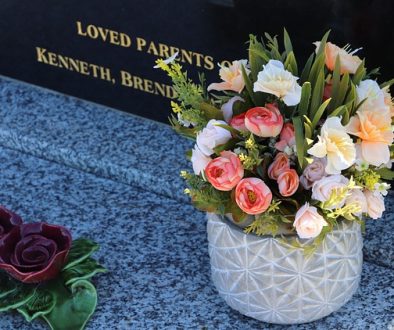Preparing for a Dementia-Friendly Worship Service
The hymns are unfamiliar. The scripture is being read from an unfamiliar translation. The pastor’s sermon is long and hard to follow.
This can be a jarring experience for many people. For those with dementia it can add to a sense of isolation they may already feel. A place of worship — no matter the faith or denomination — should not be a place of isolation. It is a community where people can experience a Heavenly Spirit who cares about them and where they know they are not alone. It is a place where people can be reminded that they were created in God’s image and that they are loved.
Churches, synagogues, mosques, nursing home chapels (or even your own living room, if that’s your style) can team up with persons living with dementia and their care partners to create a welcome environment and prepare a dementia-friendly worship service.
Some Things to Consider in Building a Dementia-Friendly Worship Service
Dementia-friendly houses of worship can make needed adjustments to ensure people with dementia are able to participate in worship in ways that are meaningful to them.
Bring Everyone to the Table
Don’t guess about what changes can make worship more dementia friendly. General changes will not do as not everyone experiences dementia in the same way. (As Brian and I always say, if you know one person with dementia, you know one person with dementia.) Invite those with dementia, their families and friends, and care partners to meet with those planning worship. Get to know the specific needs of your parishioners and come to solutions together.
Familiarity is Important
People with dementia often connect with things from their past. A common prayer and familiar hymns (music for dementia is a powerful memory-care tool) can go a long way in nourishing their faith. Consider reading prayers like the Lord’s Prayer or Muslim Call to Prayer with traditional wording. Perhaps there is a canonical translation that is more familiar, like the King James Version, the New International Version or the New Revised Standard Version.
Don’t underestimate the power of music. Music has the ability to reach parts of the brain where other means of communication fail. Consider familiar hymns like “The Old Rugged Cross,” “Amazing Grace” or “To God’s Ear” (for our friends of the Jewish faith). Be sure to ask about favorite hymns and even play some audio of the hymns while you are making a list to jog their memory.
Keep It Short and Simple
A service for people with dementia should be short — perhaps 20 to 30 minutes. This helps keep them engaged and helps with issues of concentration. A simple and clear structure works best. The service should include a clear beginning with a welcome, a couple of familiar hymns, prayers, scripture readings and a short message.
Consider using an order of service and keeping the same structure week to week. Keep prayers short and simple, and be sure to pray for people with dementia and their care partners. You could also consider including this at the beginning of your regular service, after which those with dementia could leave for a time of fellowship, if they wish, and the rest of the service could continue. This would allow those with dementia and the care partners to worship with or without the rest of the congregation or gathering.
Encourage Participation
Worship that connects to the senses can encourage persons with dementia to more fully participate. Candles, crosses, Communion elements, Holy books, and the baptismal font are all powerful visuals in a church so make them prominent. Allow their creative side to shine through music and painting.
Ask them to write or deliver a prayer, or even share their story with the congregation. Include them in your greeting team or as help in your after-service fellowship gathering. Be open to the gifts that people with dementia have to give.
Create a Care Team
A pastoral care team would be a great asset to people with dementia and their care partners. Invite a small group to be trained in assisting those with dementia. Be sure they are easily identified with a name tag or t-shirt. Care team members can assist those with dementia and their caregivers if help is needed.
It may be helpful to have a quiet place where someone with dementia can go if they feel overwhelmed — perhaps just into a separate room to “cool down” or in a fellowship hall for a cup of coffee. Pastoral care teams members could assist in this.
Learn From Others
There’s a lot to learn in creating dementia-friendly worship. Connect with worship groups who already minister to people with dementia and their care partners. Speak with health care professionals and others who work with them. Have them attend your services and give constructive feedback. You may not be perfect at first at ministering to people with dementia, but it’s good to start somewhere.
Are You Ready to Host a Dementia-Friendly Worship Service?
Dementia-friendly worship just only takes some thought and consideration. A loved one of any faith, regardless of their current stage of dementia, still has a longing to be close with their Lord. Their communion with a Higher Power may be brief and on their own terms, but it’s meaningful nonetheless.
#WeAreDementiaStrong. If you need help, Caregiver Support and Resources, LLC, has over 25 years of experience with all aspects of dementia care. We’re happy to provide referrals and guide the process in a caring and compassionate way.






